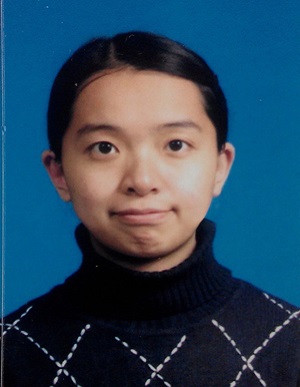
Shuo Wang (Resigned), Ph.D, Prof.
-
Member of the Youth Innovation Promotion Association of CAS
Chinese Academy of Sciences Key Laboratory of Infection and Immunity,IBP
Research Interests: Developmental biology and immunology
Email: wangshuo@ibp.ac.cn
Tel: 010-64884329
Address: 15 Datun Road, Chaoyang District, Beijing, 100101, China
Chinese personal homepage
- Biography
2002 - 2006 Zhejiang University B.S.
2006 - 2012 Institute of Biophysics, CAS Ph.D
2012 - 2013 Institute of Biophysics, CAS Assistant Professor
2013 - 2015 Institute of Biophysics, CAS Associate Professor
2016 - 2019 Institute of Biophysics, CAS Professor
- Awards
- Membership in Academies & Societies
- Research Interests
1. Innate lymphoid cells are critical for innate immune response. There two major groups of innate lymphoid cells, innate lymphocytes with invariant antigen receptors such as NKT and gdT cells and innate lymphoid cells (ILCs). We defined a new subset of innate lymphocytes that have BCR and NK cell receptors, named NKB cells. NKBs produce a large amount of IL-18 and IL-12 during infection and prime ILC1s. We will further focus on the mechanism of NKB regulation and NKB-related diseases.
2. Autophagy is an evolutionarily consistent process that engulfs unwanted proteins and organelles in double-membrane structure for degradation. Autophagy takes part in a lot of physiological process. Our research mainly focuses on autophagy in embryonic development and cell reprogramming. We found that autophagy is essential for the reprogramming of somatic cells and zygotes and initiation of autophagy during reprogramming is finely regulated. We also work on the role of autophagy in the development of immune system.
3. Hematopoietic stem cells contribute to the construction of immune system that is required for the clearance of antigens and tumors. The disorder in hematopoietic system causes severe diseases. We mainly work on the development and differentiation of immune cells and the effect of genetic or epigenetic regulation on hematopoietic system. We hope to find out the key factor in the regulation of hematopoietic system and provide theoretic support for clinic trials.
- Grants
- Selected Publications
1. Wang S, Xia P, Chen Y, Huang G, Xiong Z, Liu J, Li C, Ye B, Du Y, Fan, Z. Natural Killer-like B cells prime innate lymphocytes against microbial infection. Immunity. 2016.45(1), 131-144.
2. Wang S, Xia P, Ye B, Huang G, Liu J, Fan Z. Transient activation of autophagy via Sox2-Mediated suppression of mTOR is an important early step in reprogramming to pluripotency. Cell Stem Cell. 2013.13(5).617–625.
3. Wang S, Xia P, Huang G, Zhu P, Liu J, Ye B, Du Y, Fan Z. FoxO1-mediated autophagy is required for NK cell development and innate immunity. Nat Commun. 2015.7.11023.
4. Xia P#, Wang S#, Ye B, Du Y, Huang G, Zhu P, Fan Z. Sox2 functions as a sequence-specific DNA sensor in neutrophils to initiate innate immunity against microbial infection. Nat Immunol. 2015. 16(4). 366-375.
5. Xia P#, Ye B#, Wang S#, Zhu X#, Du Y, Xiong Z, Tian Y, Fan Z. Differential glutamylation of cGAS regulates its DNA binding and synthase activity in antiviral immunity. Nat Immunol. 2016. 17(4). 369-378.
6. Xia P#, Wang S#, Du Y, Huang G, Satoh T, Akira S, Fan Z. Insulin-InsR signaling drives multipotent progenitor differentiation toward lymphoid lineages. J Exp Med. 2015. 212(13).2305-2321.
7. Xia P#, Wang S#, Huang G, Zhu P, Li M, Ye B, Du Y, Fan Z. WASH is required for the differentiation commitment of hematopoietic stem cells in a c-Myc-dependent manner. J Exp Med. 2014. 211(10). 2119-2134.
8. Wang S, Xia P, Shi L, Fan Z. FADD cleavage by NK cell granzyme M enhances its self-association to facilitate procaspase-8 recruitment for auto-processing leading to caspase cascade. Cell Death Differ. 2012.19(4), 605-615.
Invited reviews
1. Wang S, Xia P, Rehm M, Fan Z. Autophagy and cell reprogramming. Cell Mol Life Sci. 2015. 72(9). 1699-1713.
(From Shuo Wang, February 14, 2017)

